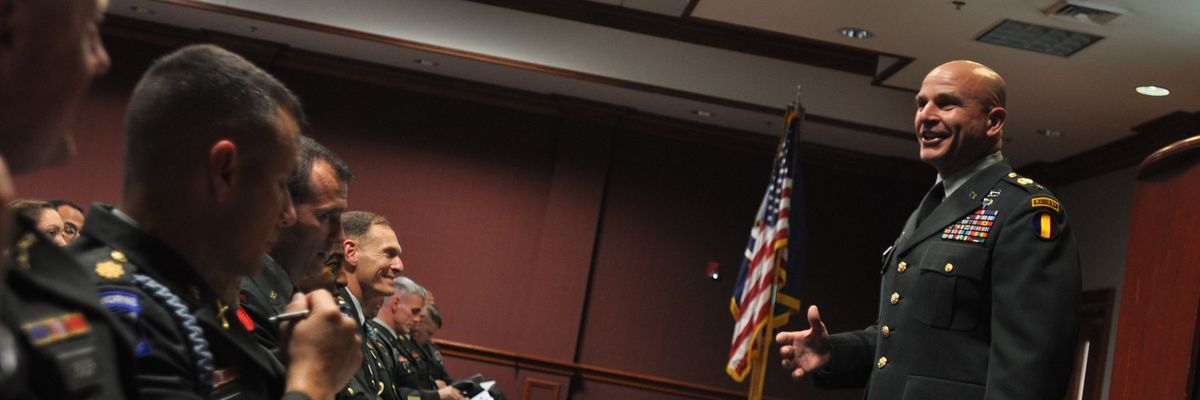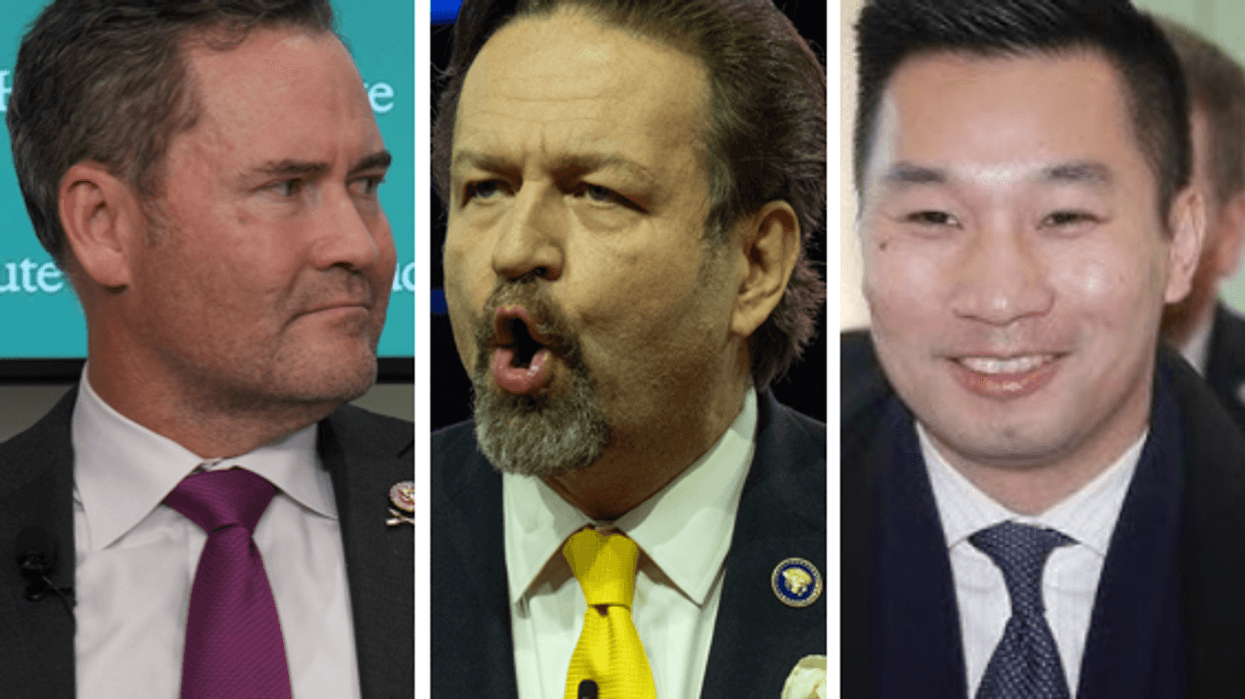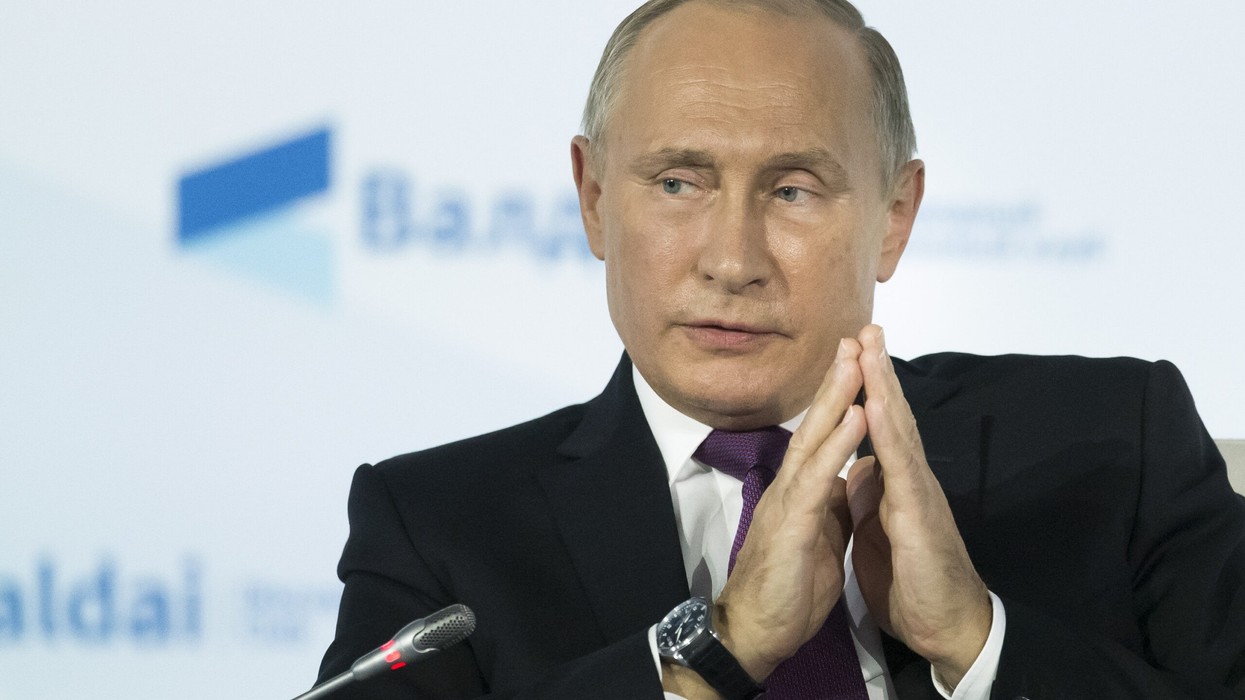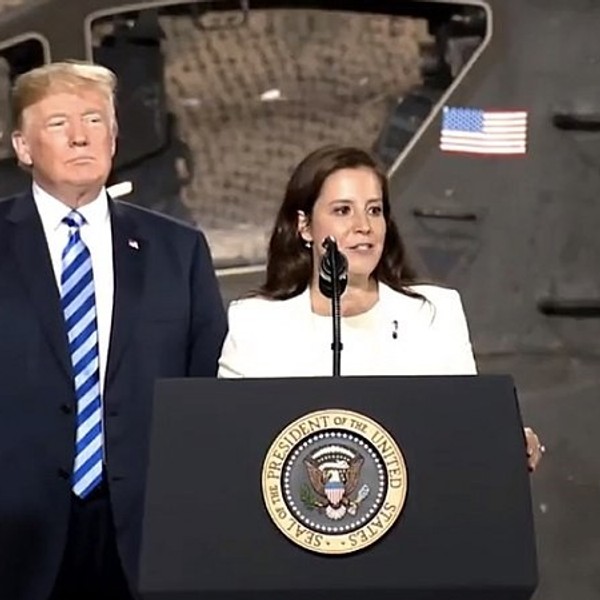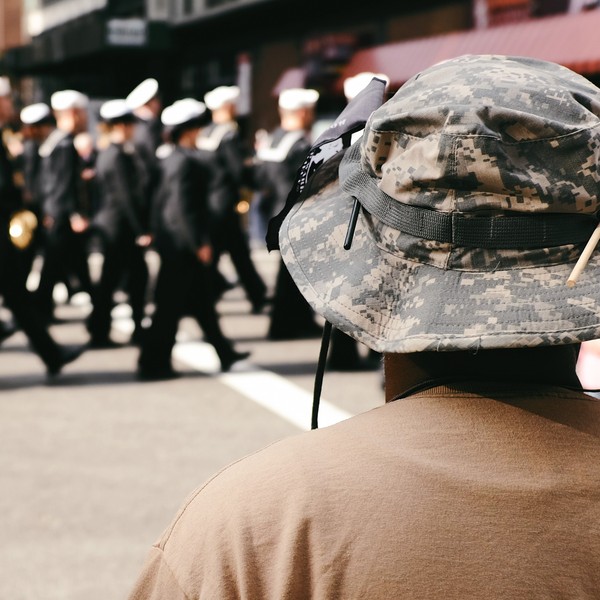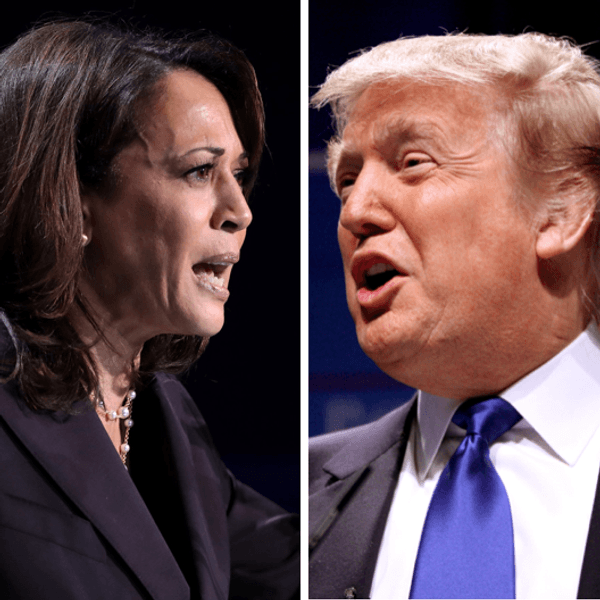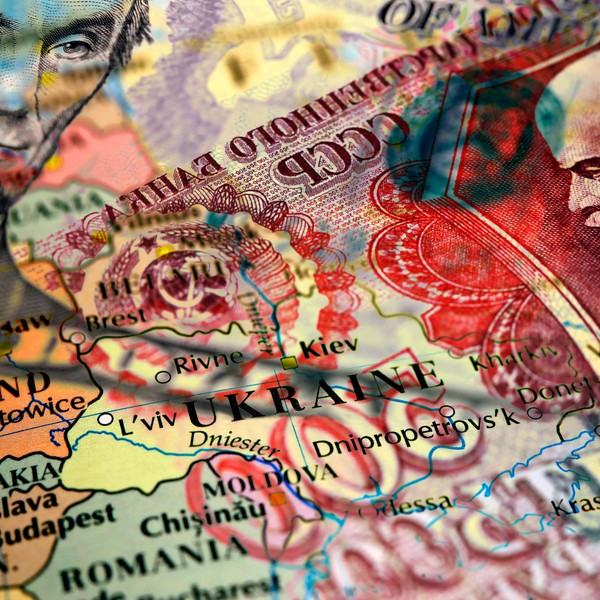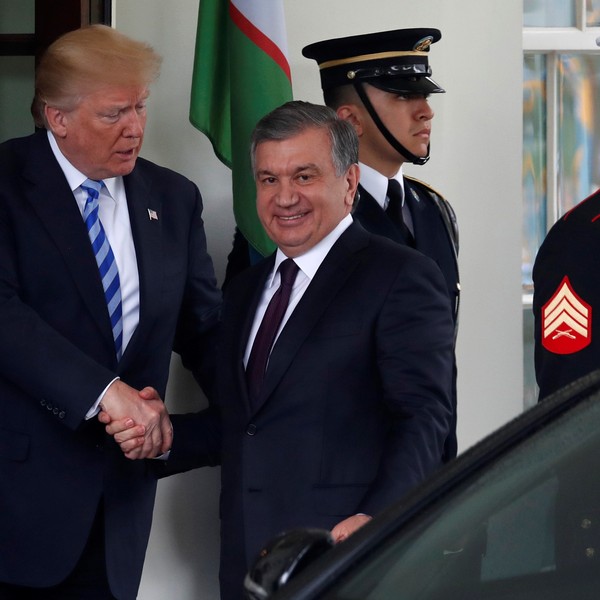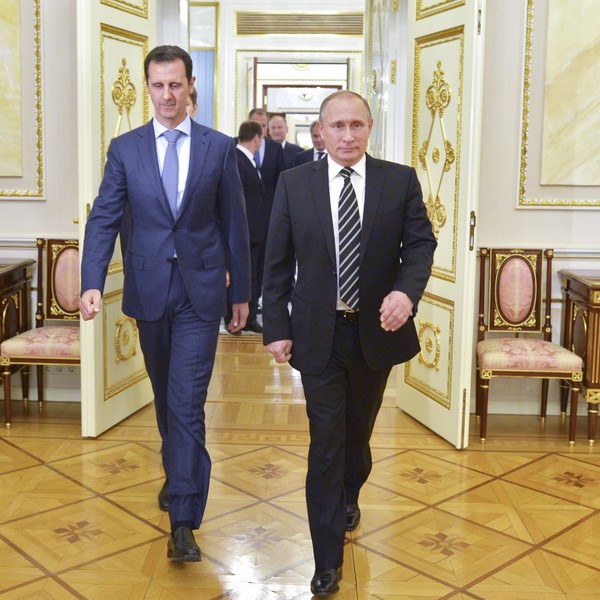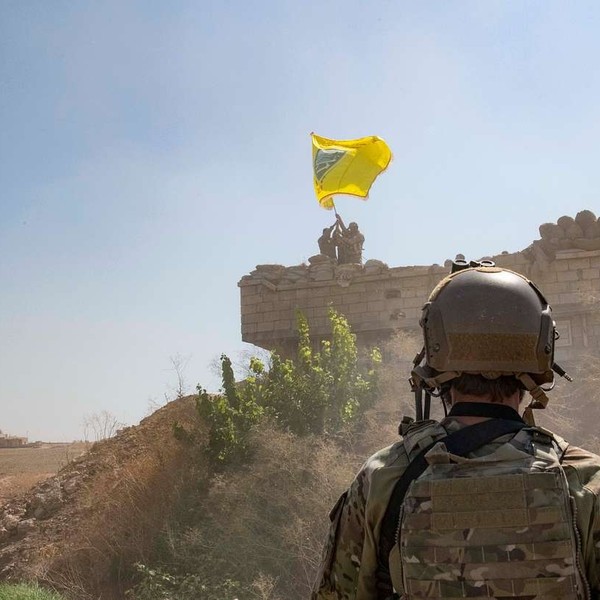Americans had better pay attention when a former national security adviser weighs in on China policy. As a trusted member of the foreign policy establishment, retired U.S. Army lieutenant general H.R. McMaster was formerly described as “one of the adults” in the current administration.
In a recent piece by McMaster entitled, “How China Sees the World,” he asserts that China is “leading the development of new rules and a new international order that would make the world less free and less safe.”
Upon observing the design motifs of the Forbidden City during his visit to Beijing with President Trump in November 2017, he concludes that China seeks to rule “everything beneath heaven.” McMaster sees Chinese foreign policy as an attempt to reconstruct a “tributary system,” in which countries enjoy peace with China “in return for submission.”
His main problem with China does not seem to concern military strategy, but rather commercial and ideological issues like technology theft and information warfare. Thus, he seems particularly irate that Beijing would dare cancel the broadcast of a Houston Rockets basketball game in China based on a tweet critical of the Chinese government by the team’s general manager. McMaster concludes the essay by urging Americans to “compete aggressively,” because “many beneath heaven” do not wish to be ruled by Beijing.
The essay may succeed as a catalogue of heartburn that Americans harbor against China (that rather incongruously does not mention COVID-19), but unfortunately it is no more than that. As a viable strategy for approaching China in the twenty-first century from a leading thinker on U.S. national security, the essay is dismal failure. It represents a mere polemic, lacking in balance or historical perspective. Perhaps most disturbing is the focus on trivial matters like tweets, and basketball games. This demonstrates a peculiar disregard by McMaster for what most consider to be the most salient role of the national security adviser: seeking to prevent, but also preparing to win the nation’s wars.
As scholars know well, polemics are of a limited utility, seeing as they focus on just one side of the story. Such one-sided argumentation that becomes a college essay generally does not receive good grades and neither should McMaster’s. So blinkered is the retired general that he cannot muster a single, positive word about China. Therefore, a few examples are furnished here to make the point.
China is one of the leading contributors to U.N. peacekeeping, including in some rough locales, such as Sudan and Lebanon. It has provided foundational support for the establishment of the Africa Center for Disease Control (CDC). Those deeply familiar with bottlenecks in the developing world, moreover, know that Chinese infrastructure is making a definite contribution to decreasing global poverty. Most importantly, the general is silent on the most obvious of national security indicators: China has not resorted to the use of large-scale armed force against another state since 1979 — a rather remarkable record of restraint for a great power.
Others have rightly pointed out the irony that McMaster himself calls in the essay for “strategic empathy,” but evinces little in his own analysis. He has the obligatory quote from the “godfather of American sinology” John King Fairbank, but McMaster might wish to read Fairbank more carefully. Were the general to do so, he might understand Fairbank’s key conclusion that, overall, “the man of violence was of course looked down upon” by Chinese culture in rather a clear contrast to both Japanese and most Western societies.
McMaster likewise pays lip service to the “Century of Humiliation,” but seems blithely unaware of any American role in that sordid enterprise. Fairbank, by contrast, wrote about the considerable U.S. role in trading opium in China before and after the Opium War (1839-42).
Indeed, Americans played a major role in the “treaty port system,” which as Fairbank described, had the obligatory “institutions … the club, the race course, and the Church … protected by squat gunboats moored off the bund.”
If McMaster were ever to go to Wuhan, the newly famous industrial hub deep in the interior of China, he would see such a bund and maybe even realize that American gunboats were a common sight anchored off that city during the early twentieth century. If McMaster wanted to attempt strategic empathy, he might try to imagine Chinese Navy gunboats patrolling the Mississippi for almost a century after 1854. One should never forget the extraordinary exploits of certain Americans, for example the famed Flying Tigers. The Chinese certainly have not, but a balanced view allows for both perspectives.
The most bizarre characteristic of McMaster’s essay is actually its strange focus on commercial issues, including Made in China 2025 and the Belt and Road Initiative. Is the general a PhD in development economics or maybe he has a decade in the banking sector? He is concerned about Chinese officials with “duffel bags full of cash” wandering around the Indian Ocean “and elsewhere.”
From his experience as Deputy Commander in Afghanistan, one may suppose he might know about the strategic employment of large bags of cash, but that is the level of sophistication of the economic analysis undergirding this piece. American national security leaders likely have better things to do than go around the world telling little countries what investments are wise and which are not viable. Indeed, the essence of the global capitalist system, which Washington purports to uphold, is that investments must frequently fail and thus be disciplined by market principles. Why should Americans care if China loses its shirt in Laos, Tajikistan, or Maldives —all countries mentioned in McMaster’s meandering analysis?
Curiously, McMaster refrains from commenting on certain key military developments. He does not mention either the DF-21D or DF-26 “carrier-killer” missiles, or the YJ-18 and YJ-12 anti-ship cruise missiles. These are exceedingly dangerous capabilities, wherein Beijing has developed superior maritime strike systems. Even if the general is more interested in tweets and basketball than military capabilities, it is disturbing that he does not even mention certain foundational concepts for managing great power rivalry, such as crisis management and the all-important concept of the “security dilemma.”
Finally, the former national security adviser has little to say regarding the most dangerous scenarios: obviously Taiwan, but also the South China Sea or war on the Korean Peninsula. On that latter point, McMaster’s legacy in office will certainly include his novel “bloody nose” concept that virtually all specialists considered to be reckless in the extreme. Given his other major policy initiative, keeping U.S. soldiers in Afghanistan, one wonders whether he is capable of formulating grand strategy.
Most disturbing of all, however, has been the comparison of McMaster’s article with George Kennan’s famous X-article. The general himself would likely be uncomfortable with this comparison. After all, Kennan spoke Russian fluently and had lived for many years in Russia and Eastern Europe. His understanding of the Kremlin was not paper thin, nor did he suffer ideological rants, favoring instead pragmatic diplomacy. But if Kennan were to examine U.S.-China relations today, one may speculate that he would call for moderation, a realistic policy toward China based on strategic priorities, as well as a single-minded focus on putting our own house in order. Above all, he would most certainly counsel to “avoid trivia.”
The opinions in the article above are the author’s alone and do not reflect any official assessments of the U.S. Government.
